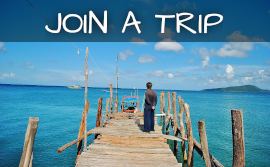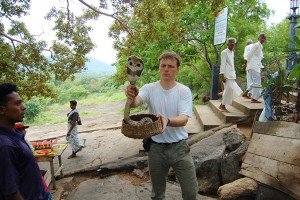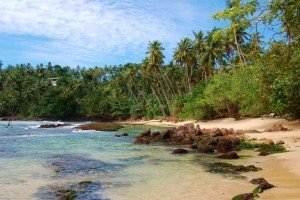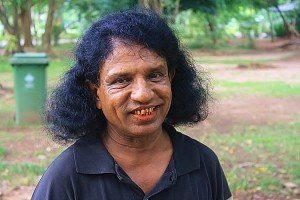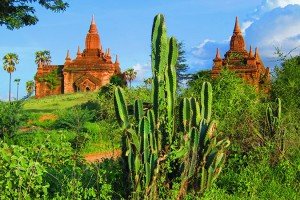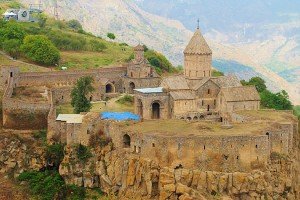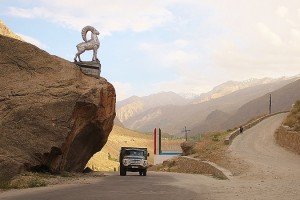General travel advice
General travel advice
In this chapter, I give advice to adventure travellers, which as I believe, would be helpful for both beginners and experienced explorers. Although the Kompas website is about travelling to Asia, my advice can be also successfully applied to those who organize expeditions to Africa or South America. Regardless of the travel destination, at least in theory common sense should apply.
Travel advice
There are some things that seem obvious but every time I travel I notice that many of them still need reminding. Often during preparations for trips we forget about certain things or we simply ignore them. The more I travel the more ideas come to my mind and I am sure that my advice would help.
- Visas and valid passports. Make sure that your passport is valid for at least 6 months and find out whether you need a visa for your destination country. In many countries we get visas on arrival but it is still better to check. In the countries sections on this page I have included practical information, where I discuss visa requirements for every country which I visited.
- I approach mass vaccinations with disbelief, because I’m not a doctor and I don’t know what is really inside them. However, those who believe in them should make sure that they have all the necessary vaccines. This topic is so extensive that I wrote a separate chapter titled health. I advise you to read it carefully.
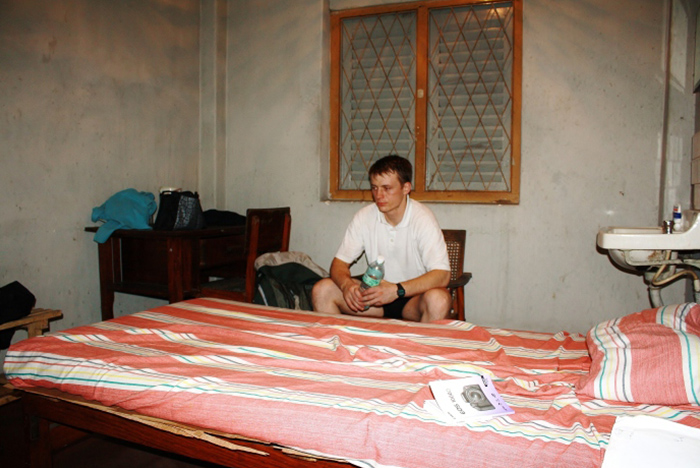
The situation is never as hopeless as it might look like. (In the picture my “luxurious” room in Colombo, Sri Lanka).
- Imagine that you are in Nepal and you went for a long and exhausting expedition to the Himalayas. Unfortunately when you were already quite high you broke your leg, and provided that there is good visibility and good weather, the helicopter can pick you up from the top, what unfortunately costs a lot of money. Would you want to pay for that service £2000? What if the only doctor in the mountain town of Pokhara also went to the mountains and there is no one to fix your leg, and the situation has become so complicated that you would have to be driven to Kathmandu? Travelling at night at the edge of the Himalayas is impossible, and the roads are so bad that your health could get much worse. You would therefore need to fly by a helicopter what would cost another £2000. That’s why especially when it comes to more challenging trips, I advice to buy adequate travel insurance.
- Packing is also very important. Consider that everything you take you will have to carry by yourself, and along the way you would certainly buy things, so your luggage would grow with time. The rule is that your luggage should be half empty, and if it’s not, then just throw away half of what you have because when you get there it would be probably so cheap that you could always buy the necessities. Take only those things which are really necessary and not those which are fashionable, useless, and take space in your backpack. I usually take clothes which are worn out because if someone steals them or if I lose them, then I’m not sorry, as I would probably leave all that rubbish behind anyway.
I knew a traveller from Japan who was so worried about the weight of his backpack that it weighed only 4kg, and he additionally sawed a toothbrush in half to save space. I think that a backpack with a tent should weigh maximum 8kg, and without a tent 6kg. I advise to limit your luggage to a very minimum, do laundry more often and throw away things so a traveler does not become a camel.
Usually I only take a backpack but if my trip takes longer or if I need more equipment, then I also take an old wheel suitcase and I put my backpack inside. Suitcase allows for a greater order in clothes, papers and souvenirs, and when I go to the mountains, deserts or jungles, then I only put the necessary things into a backpack and I leave the suitcase in a hostel. It is also extremely important that you always pack and repack by yourself. You don’t want anyone to plant something in your baggage.
I dedicate this paragraph especially to women and I emphasize that makeup equipment also takes space. Instead it is better to take 1 cream and buy another one if it runs out. Camels, monkeys and mosquitoes do not care about women’s shoes or a shirt colour, but it should be important to a woman to protect herself from the sun and to not to break her leg.
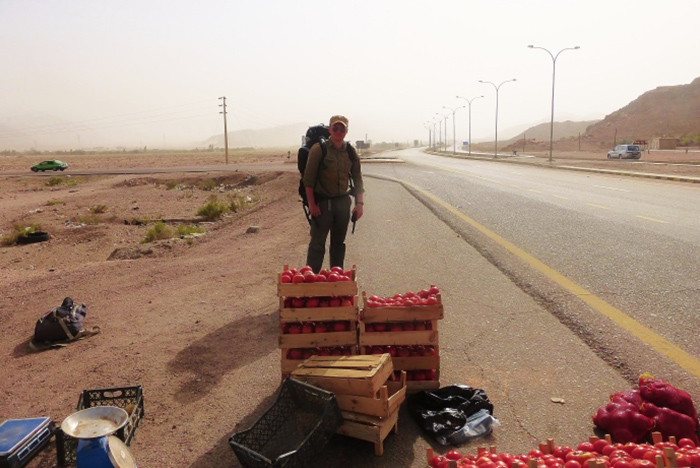
When you go travelling your backpack should be half full because it will grow with time. (On the way to Wadi Rum, Jordan)
- Flights are always the most expensive parts of any trip, that’s why if it is possible try to buy in advance and avoid school breaks. Sometimes, to save money I fly to another country in the region, and then I get to my destination by a cheap bus, what means that a part of my trip works out free. For example a flight from Iraq was 5 times more expensive than a flight from Turkey, that’s why I went to a Turkish airport what saved me 300 euros. If I can afford a flight I can also afford the trip.
- I recommend guidebooks. During our trips they might save us some money, would certainly answer some questions and they are interesting read during long flight and train rides (India, China). We can learn from them a lot of interesting things about the country and the region, about history, art, culture and people.
- Passport is your life. When you are away from home, it should always have the same meaning as money. Without your passport life becomes very difficult because it is hard to rent a room and prove your identity. If you lose your passport, embassy should be your only destination. If there are safety boxes in your hotel I advise to use them, depending on the class of the hotel. The most reliable place to store your passport will always be your embassy, and if there isn’t one try the embassy of a friend country. Then you can only carry a photocopy of your passport and a copy of your valid visa. In some countries the norm is that fraudsters introduce themselves as police. They want to see your passport and they run away with it. The best way to deal with this scam is to say that you will show it to them at the police station or better at your embassy. However, in most countries police only causes problems and it’s better to be avoided. The best example of problematic and corrupt police is in the former countries of the Soviet Union.
- Money is the most important thing whilst travelling, just after your passport and health. In a country where the average salary is about 50 USD per month, in the eyes of local people we are white millionaires from the West. I’ve experienced this many times and so have other travellers.
“White man might look like a beggar, but his backpack is stuffed with hard currency and gold anyway.”
Perhaps I exaggerate but this is the impression we make in certain countries. Take my advice and don’t throw money around. Do not count it in public, and in your pocket only keep some change and some local currency. Don’t show euros or dollars as this makes the locals more greedy. Under any circumstances do not engage in a conversation about money with local people. Do not say how much you earn and how much your currency is worth in the local currency. Especially in India this is a very bad idea, and explaining it to those people is pointless. No matter how hard they try to smile to you, in reality they just smile to your money, and without it you are worthless. For example in Thailand no one even smiles for free anymore.
I also don’t recommend a wallet with money, which would be on display. In my opinion it works as a loud invitation: “Hey thieves, all my valuables are right here.” I also advise to hide your money in secret places. Money belt is very good but there are a few more secret places. Money can be sewn into shoe tongues or into a backpack. It can be kept in a bag with dirty socks, inside a torch, in a box of vitamins, inside a pen or in an empty sunscreen bottle. Women can also keep them in bras. I do not advise to count money in public or trust “friendly” people close to cash machines. In case of suspicion cancel the transaction.
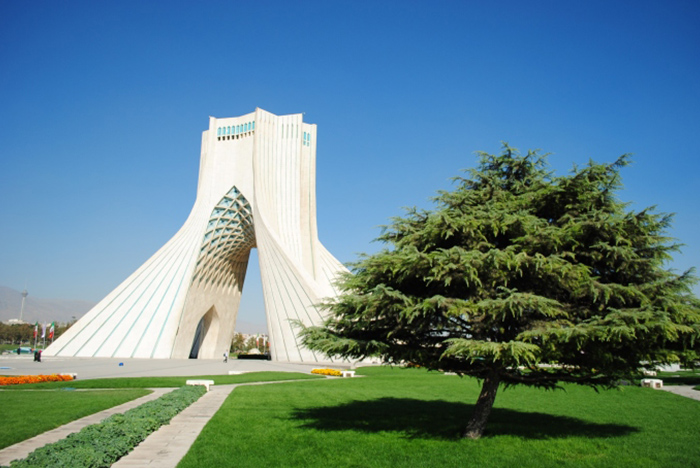
There are also famous landmarks such as the Eiffel Tower or Taj Mahal, which have been photographed about million times already. It doesn’t really matter because you will also want to photograph them, so at least make sure that your photos are special. In this picture: Azadi Tower in Tehran, Iran.
- Diversify your money. For my every trip I always take British pounds because it’s convenient for me, but U.S. dollars are the best because they are cheap and well known, contrary to euros or pounds. To some countries cash machines have not arrived yet, what means that cash is the only option. As the last resort I suggest to have someone you can trust at home , who could possibly send you money by the Western Union or a similar system.
- Always keep your documents and cash in waterproof packages. They can be either plastic or foil envelopes with a zipper at the end, or a plastic envelopes after postcards. I learned that the hard way during the rainy season in Burma, when everything what I got completely soaked. Then I had to dry my money, passport and traveller’s checks like laundry, on a string under the ceiling.
- Do not judge the developing world through the picture of the European culture and European standards. These are two completely different worlds
- Begging is a never-ending nature of certain parts of the world. We may be sorry but I don’t advise to give money, and especially to children and the handicapped. Very often they all beg for one man, what is a standard scam in India. It is better to give some food or a toy and if you want to give cash then give it only to the legally registered charity. Then you at least know where your money goes.
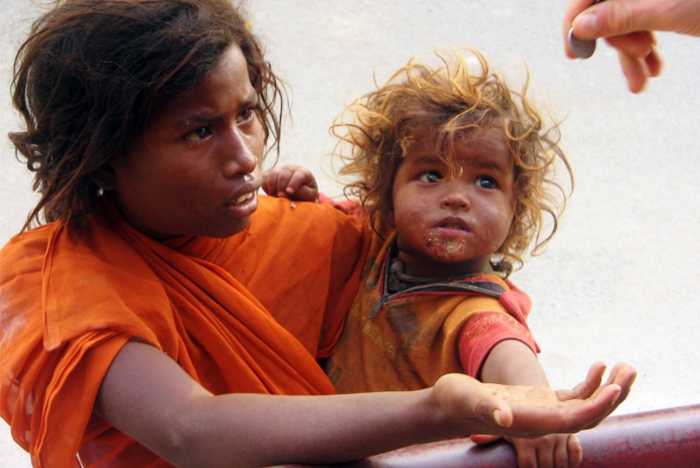
Woman with a child asks for help but how can we be sure sure that they are not used by one man who stands behind them. (India)
- If an area is quiet and spotlessly clean, let it remain that way. Be quiet and take all your garbage with you.
- It is hard for me to advise how to stay calm but try to control yourselves. After leaving the airport in a very poor country let’s not let the sellers of everything and nothing to plan our lives. We can arrange transport and lodging by ourselves, our way and at a fair price. If you are interested in a certain object, concentrate on it as long as you need. Do not stop just because a rickshaw driver or a salesman of tacky souvenirs wants to make money on you. Do not get upset because there’s no hot water in the tap and because your bus travels 20 km/h and leaves only when it’s 150% full. That’s how it is, so try to take things as they are. Sense of humour always helps.
- You don’t have to agree with everything but respect local customs and beliefs. Let it be your educational tourist attraction.
- Try to praise local people and their countries. The technological and economic level is far below the European but it is not the reason why we go there. They also have their values, their countries are beautiful and their cultures are worth to be explored (as long as they stay in their countries). If there was nothing good over there we wouldn’t want to visit.
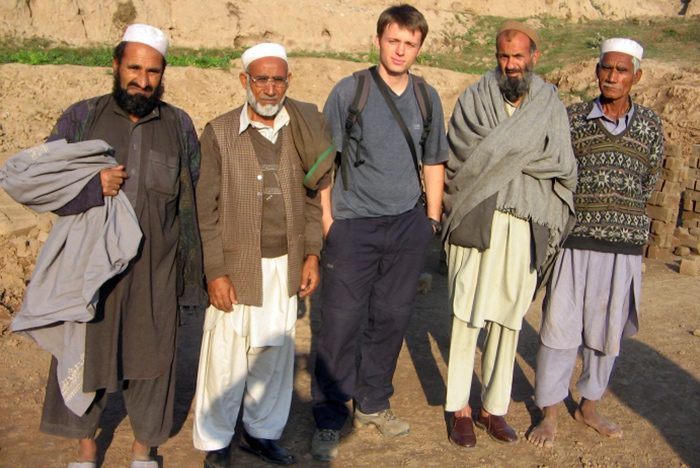
With gentlemen who I would gladly deport from England but on the other hand I appreciate the experience associated with their companionship in the countries of their cultural circle. In the picture: The Afghan Refugee Camp and a Brick Factory, close to Afghanistan; Pakistan.
- I advice to be careful with alcohol consumption. In Islamic countries during Ramadan it is forbidden and a subject to a strict local law. which may cause serious problems. Besides, regardless of the country a drunken tourist wears a label – “I want to be robbed.” If you’re drunk you are always an easy prey for thieves and scammers, and drunk women also for rapists. I advice to stay sober.
- Stay away from drugs. Whites seem to think that if Blacks in England sell marijuana and other drugs on the streets, and the English police does not arrest them because of political correctness, they are confident that in Thailand “one joint wouldn’t do any harm”. Unfortunately it would because in Thailand it is a very serious offense, that can end in many years in prison. In Thailand drugs are also sold by plain clothed police officers in tourist centers who catch stupid tourists that way. Drugs are also given in secret by ladyboys and prostitutes for bribes, and each tourist district or an island are full of drug dealers, bribe-takers and coppers. For selling drugs you can get a life sentence or even a death penalty, but still there is no shortage of stupid Whites who do it. Quite often police officers force bribes for such large sum of money that holidays come to an end sooner than expected, and I assure you that it is still the best way out of such situation. According to statistics the most stupid, the least sensible and the most drunk are English people.
Out of all the stupid ideas that would ever come to you minds, drugs are by far the most stupid! It is so easy to waste your lives!!!
- Stay away from those who ask a lot of wrong questions. Questions about what you did at the orangutan centre in Indonesia are fine, but questions about your family, your income, your address, where you’re staying or what’s the date on your return ticket are the wrong questions. Perhaps this is a crook who wants to rob you or a scammer who wants to drop drugs into your room just before your departure, so you could take them to Europe. Receptionist would do anything for a bribe. You can’t trust anyone and that’s why you don’t give personal information. Alternatively you work for the police and you never forget faces, and when he takes his attention away from you for a second take a picture of him. Also, try to notice characteristics such as scars or tattoos.
- Make copies of important documents and a list of important numbers. These are the copies of your passport, visa, bank cards, phone number to the appropriate department of your bank when calling from abroad, address and telephone number of embassies in each country, and a copy of your insurance. Besides, I also advise you to send all that information to your own e-mail. If there isn’t your country’s embassy in the country you travel around, you could eventually go to the embassy of a friendly country. (This means that all the sexy and beautiful White women can go to the Polish embassy :).
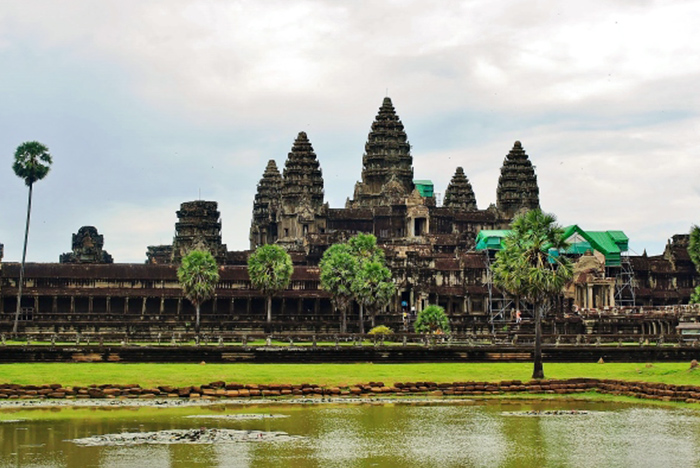
Beautiful and timeless Angkor Wat in Cambodia.
- I know from my experience that safety depends primarily on common sense. In many countries, it is better to not to go out after dark but if we have to, than our taxi should take us back straight to the hotel, and not 50 meters away from it. In a country like Venezuela or Colombia a lot can happen over a distance of 50 meters at night. I advise you to listen what about safety have to say your hotel manager, a newspaper boy or a bootblack. They know the best where to not to go, why and what time.
There is also a risk in travelling to countries which are potentially dangerous. Of course I don’t advice going to a country where there is an open out war, although this is a more complex issue. Some countries have only one region which is at war, and the rest is very safe. That’s how it was for a long time in Sri Lanka in 2008. I enjoyed southern Sri Lanka, whilst watching fierce fighting in the north. Sometimes it happens that occasionally a bomb explodes somewhere where we don’t expect, but apart from that those countries are generally as safe as most of Europe. Bombs exploded in Cairo, Mumbai and London. Meanwhile London is still considered safe, and Cairo and Bombay not. I’m used to the fact that wherever I go, they try to scare me about how dangerous it is. Meantime in 2006 I went to the border of Afghanistan through the lawless areas of Pakistan, I drank green tea with bearded, armed Muslims, and then I returned home safely. In 2010 I was in Kyrgyzstan during civil war and I entered illegally to Afghanistan through Pyanj river from Tajikistan. In 2015 I was in Lebanon by the Syrian border and I was questioned by Hezbollah, and then I was travelling alone around Palestine. I even went to Iraq, and every time I left without a single scratch. Meantime the British Foreign and Commonwealth office writes “travel advice” through the picture of the judgement day or a zombie apocalypse. My advice is better than theirs. Please, do not listen to the advice given by the British Foreign and Commonwealth Office. People who work there write horror stories during their day time job and they live in their own state of consciousness. The world is a dangerous place but don’t panic and don’t believe the official warnings published by the British Foreign Office. They want us to stay in England and pay taxes, instead of going away to spend money abroad.
Due to the fact that I choose potentially dangerous destinations, some people call me “extreme tourist”. Well, when I’m an old grandpa, probably others will tell me about their vacations on the Greek islands or in Spain. I will tell them that I was in Iraq, Pakistan, that I was in Burma and that I saw Mount Everest. I also ask myself how I would like to die. Certainly not in front of the TV whilst having tea. Maybe in Afghanistan from the enemy’s bullet, or whilst climbing K2, or at least because of a snake bite in India. I think my readers have already understood what I mean.
- If you are a White woman and especially with light hair, you will always attract attention. If you want to be safe do not provoke. Norms of behaviour are different in Europe than in most of the world. You should not dress provocatively and you should not start conversations or make eye contact with men. If you feel uncomfortably you should always say with a strong voice, that you have a husband and three children and you’re going to see them right now. Your religion and your state prohibit you from any contact with other men!!!
Usually people are good and they wouldn’t hurt women, but there are also those who would! A plague of rape was recorded in India and in Egypt, but also in many African and Muslim countries. I am against solitary travels of white women, because it is always easier to hurt a woman than a man. White woman should always travel with a trusted man of the same race, especially that in most of the world a white woman in a mixed relationship is treated like an infested prostitute. To all white women I recommend a scientific reading on racial purity and racial awareness.
Unfortunately today these are also sad realities in western Europe, because the mass immigration of Blacks and Muslims has turned Europe into a Muslim rape zone. I therefore give the same advice to white women who live in Sweden, Norway, Germany, England and in many other countries. Europe has changed for the worse, but on the other hand brainwashed with feminism and liberalism women are simply stupid, because first they vote for pro-immigration parties, and then they are raped in Europe of the silent, politically correct media and red police. The difference lies only in the fact that for example in India or in Egypt rape on white women is a rape without any deeper ideology, whilst in Europe rape and race-mixing propaganda are the ways in which the globalists carry out the Replacement Project on white nations. Either way, women are the victims.
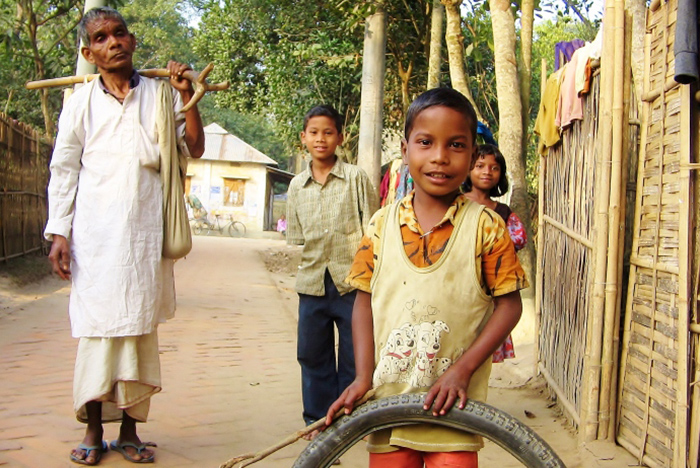
Some memories will stay with me forever thanks to spontaneous grip of my camera. A scene from the village of Srimangal in Bangladesh.
- Start your day early and you’ll see more. In addition, the best light for taking photos is early in the morning and before the sunset.
- Camera.
Consider whether you really need a big and a heavy camera with a long lens as if you were trying to photograph the star system. This is another huge and a very expensive luggage which you will have to carry, and which you will have to keep an eye on. If you’re going on a safari to Africa to take photos of hunting cheetahs, and then you’re going to publish those pictures in photographic magazines, then take such camera. However, if you are an average photographer, a compact camera that fits in your pocket should be enough for you. Compact cameras have many functions, good zoom, they are cheaper and they are tailored to your needs. Do not try to look like a professional if you’re not, because showing off costs a lot of money.
How to protect your camera worth for example £300 in a country where the average salary is £50 a month. My way is putting a grey tape on a new camera to discourage thieves. When someone asks how much it is worth, I say that it’s worth nothing because it is old, found, taped and it has already fallen about 20 times. I always tape my camera in a very ugly way, so it could discourage most thieves – and it works!
Buy your camera one or two moths before departure so you could check how it works in all weather conditions.
Take a second camera with you that fits in your pocket and is easy to use. I learned that the hard way, because a couple of times my camera broke down whilst travelling.
When buying a camera don’t be fooled by the number of megapixels or the zoom power. According to research small compact cameras with a small sensor but too many megapixels take less sharp images in low light. Exaggerated number of megapixels is just a marketing trick. For example, if Canon gives 18mpx, Nikon gives 20mpx to spread the message that they gave more, but it has nothing to do with the image quality in low light. A record high number of megapixels is needed if you are going to print huge posters on the streets. Then it really matters. When it comes to zoom, a powerful one in a compact camera does not guarantee sharp images. You should ask yourselves whether taking pictures of a pigeon sitting on the gate on the other side of a football field is something that you really need, and if you think that such photo would be clear, and especially when it gets dark. Also, sometimes 18 x zoom is better than 30 x zoom if the camera is not able to let in enough light inside. When buying a camera I would rather look for taking quality images in low light and optimal zoom in relation to the sensor within the specified price range. Other important factors are tools for taking photos of animals in motion and several filters. Do not worry if some of the pictures do not come out well because good photos depend on many factors and it’s not only Parkinson’s disease or skills, but also the weather and time of a day. Professionals only show us their perfect photos but they don’t show us the 20 other ones that didn’t come out well, and their whole equipment for thousands of pounds.
This advice applies to compact cameras in the price range of £160 – £250, because we are budget travellers. Emergency cameras should cost maximum £60 and can be second hand.
I’ve noticed that a little tripod can be very useful. Despite sincere willingness people in countries such as India, Pakistan or Iraq are not able to take good photos, and that’s why it is much easier to put your camera on a tripod and set the self shooter mode. Language barrier and lack of photographic experience can seriously test your patience.
- So you are a budget traveller. Okay but once in a while spend a night in a better hotel and go to a better restaurant. Don’t let your trip to become a survival camp, during which you only sleep in a tent or in a room with 10 other Whites, who are just as broke as you are.
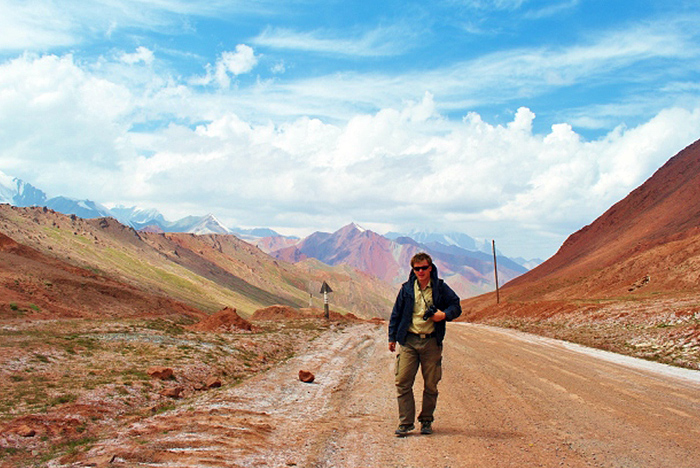
Tajikistan – The Pamir Highway.
- You have your travel plan but don’t necessarily move around just on the beaten track. Sometimes the most interesting places are the ones that are not even on the map, because people over there are more natural.
- Spend time with local people because only then you are able to get to know the country as it is. Listen to their stories, take notes and learn. Let it be your form of education which you will always remember.
- Do not become the exotic visa collector. Do not plan the duration of your trip and do not fool yourself that exploration of 5 countries takes 5 weeks. Stay in the country as long as you feel that you are happy, fulfilled and you are ready to leave. In Laos I was going to spend 10 days and I stayed a month. To Iran I went for three weeks and I stayed 1.5 months. Take your time because when you go back home to your grey reality, you don’t want to regret anything.
- You have planned your day. You know what you want to see and you are in a rush to get there, but do not tick off those places like a shopping list. Sometimes you have to slow down to enjoy your trip. A good thing is to take a break for lunch with a good view of the busy people. Enjoy the fact that you can quietly watch rushing people. This is also a part of your trip.
- Organizational day. Part of the expedition are also days off from sightseeing and moving around, so you could do your laundry, work on your photos, use internet and organize your pictures. You’re not on a weekly holiday by the sea. You’ve left the desert or a three week mountain expedition, or you traveled for several weeks on Indian roads in dust and chaos. You need to get yourself together.
- If you wish to travel with white children then you need to be especially careful. I’m talking about things such as: a continuous movement in a poor transport, too rough or uncertain food and lack of hygiene. With children your trip would definitely take more time, it would be definitely harder and a little more expensive. On the other hand I met a couple from Holland which was traveling with two small children in India, and they coped quite well. In most countries that I’ve been, local people were always willing to help and children were the perfect reason to “break the ice”. In addition, during loading onto tragic trains and buses and when everybody pushes in, there are always a few friendly pairs of dark hands which want to help.
Countries prepared for tourism are easy to travel for children and breastfeeding mothers, what means that destinations for young families should be carefully selected. Thailand, Laos, Cambodia and Vietnam are well prepared for tourism. Nepal as well, but this is a different kind of tourism and a harder standard. India, Mongolia, Tibet and Central Asia must be excluded, because those parts of the world are not suitable for travelling with young children. You also need to take into account the health of a woman, who must have peace during breastfeeding and can’t be moving around all the time and live in constant chaos and filth. To ensure the well-being of white families with young children, you should choose well the travelled countries, so those with good transportation, safe food, decent hotels, no malaria, no chaos, with good security, and you should go at the right time of the year. White children must taken care of as well as possible, because they are the future of our race, and for that reason it is best to divide responsibilities. The woman only takes care of the child and the man deals with everything else.
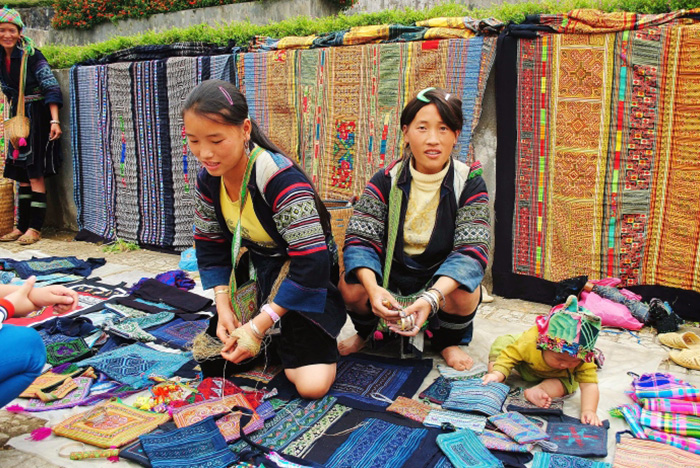
Try to capture a moment from people’s everyday lives. Vietnam.
- During my last trip I found certain gadgets to be very useful, such as: mini laptop or mp3. Imagine that you’re stuck on a lousy bus or train for 12 hours, or it rains, it’s a dark night and there’s nowhere to go. In times like that it is nice to watch a film or listen to music. In addition to that, mini laptop works great as a picture back up, and a purchase of a mini laptop will pay for itself after some time, because many pubs and hotels offer now a “free WiFi”. This saves money on internet cafes and gives you great independence and comfort. Sometimes it is good to go harder on yourself, but travelling should give pleasure too.
- According to me democracy does not exist and there is no such thing as complete freedom. Regimes in Western countries and in Third World countries rely on the same principles and differ only that in our countries it is the anarchy in white gloves, and over there there are evident regimes. Some countries such as Tibet, Palestine or Burma are oppressed by an evident regime. Whilst travelling around those countries I advise to not to support or at least not to help those regimes more than we helped already because of our arrival. To do this I advice to not to use expensive hotels, restaurants and trains, because that would only enrich the local regime. Instead, it is a good idea to stay in private guest houses, eat in small stalls and travel with private carriers. It’s not always possible, but if we at least try, then our dollars would get to the people who really need them.
- Avoid political demonstrations because it could mean trouble. I am however good only in theory because I took part in marches with fire torches and tear gas in Bangladesh and in Lebanon. Be wiser than me on that.
- Behave at the level of your white race. We go to the other end of the world and we judge people, but don’t doubt even for a moment that they also judge us. To Arabs or Chinese all Whites are the same and I’ve heard many times that ‘Europeans and especially European girls do not behave well’. Let’s try to represent our race in a good way and let’s remember that people in distant countries perceive the world in the same way as I do – by race, and so should we. I also advice white women to not get influenced by the venomous socialist ideologies such as liberalism or feminism, as they could have tragic results.
- Respect your country. There is something good and bad in every country, and I understand that if you go to Malaysia or Kyrgyzstan you can complain about the British prices or a politician that you don’t like. That is okay, but if someone goes around the world to purposely spit at his country and his national symbols, then he is a pathetic scum of the value of rat shit, and does not deserve to go back there.
- Wear a small crucifix for good luck. We travel to distant lands to get to know different cultures, but I noticed that people in distant countries also want to learn something about ours, and Christianity is the base of it.
- Be honest with the locals. If you take pictures of people, sometimes they will ask you to send them over. Then, either honestly say that this is not possible or say that you can send them only by email; and if there is no email then there will be no photos. Imagine that for a year 100 Poles would go to a small village in India, and each of them would promise to send pictures but none of them would ever get there. Indians would eventually label our entire nation as liars and they would feel let down – what we don’t want. I make notes of emails in my notebook and then I send them over; and if local people don’t have emails, then I honestly say that they won’t get any photos. During my travels I emailed photos to Malaysia, Turkey, Iraq, Burma and many other countries. (Lying to the locals is like being an English politician: “elect me and I will reduce immigration” – so they elected him, and he increased immigration).
- Do something good for local people. Regardless of your character or political views it is good to help others from time to time. When I was in Calcutta I helped in the Mother Teresa’s Dying Home, where I took care of people who were very often standing above the grave. I fed them, I gave the water and medication and tried to make their time with me enjoyable. Sometimes I also wrapped their bodies in white sheets, I put them into coffins and I took them outside to be buried. To most people it was a job which was emotionally too hard to take, but I did just fine and I always delivered service with a smile. Giving and offering help enriches your soul.
In Sri Lanka I gave teddy bears to children, and in Bangladesh I bought tea and biscuits for children in the street. In India, I bought from the most needy ones and to some of them I gave snack and drinks. I do not consider myself a millionaire, but I think that through small help I become a better person and represent Poland better. In Bangladesh, I helped poor people to collect firewood and I always leave a small tip. Also, in many countries the sun doesn’t have any mercy, and local people cannot afford sunglasses. This is the most practical gift I can think of, but let’s not force it, only give only when you like someone. Let’s remember that we don’t owe those people anything, but we can be kind if they are nice to us.
! I only warn travellers that good deeds are not supposed to turn into naivety. In India there are gangs that mutilate children, so they could always beg and give them away all the money. Also, a white woman who goes on a trip with a group of Muslims or Indians is simply infinitely stupid and creates conditions to be raped. Children in India are wonderfully trained thieves and fraudsters, and every traveler who wants to offer help must be guided by common sense. There are many charities in each country, which would use our money for the right things, and it is a much better way than giving money to accidentally encountered Sri Lankan fraudsters, who collects money for schools and hospitals, which don’t exist.
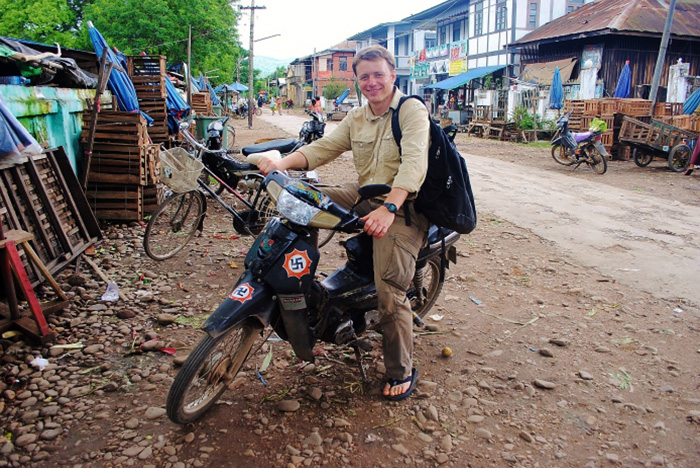
It looks that I’m ready for action. Burma. In Buddhist countries, the swastika appears in many places as a symbol of happiness and peace, and it is not offensive in any way.
- Shopping. I believe that it is necessary to use the low prices in Asian countries and do big purchases – especially that it is good for us and for them. In Iran I bought cooking pans, in Sri Lanka I bought a few things for home, and in Turkey, Jordan and Iraq I bought perfumes, trousers and trainers. In Iran I bought several pairs of shoes, kilograms of various teas and dates, as well as a larger suitcase to pack it all. I think that we should buy as much as possible, especially that for example 100ml of perfumes in England costs even £80 and more, and in Iraq or Turkey only in the range of £5- £10. I also saw travelers who bought whole suitcases of alcohol and cigarettes, so that later it would pay for their flights and even for the cost of their trip. I would also recommend China, where prices are very cheap, but unfortunately the quality is terrible. For sure in China and Vietnam one should never buy shoes, although in Vietnam I was able to buy a “North Face” jacket, which I then sold to my English neighbour. Some smart travellers even make wish lists among their friends and collectors; and those can be such sophisticated things like match boxes from exotic countries, worthless but very interesting banknotes and post stamps. In Dubai, Hong Kong, Singapore and above all in India I recommend to buy gold, and those going to the Indian subcontinent should take a camera, a mobile phone and a video camera. In Hong Kong one can buy a new I Phone and sell it with profit in India, what means that the business traffic works both ways. I am trying to reduce your travel costs in this paragraph, and I hope that I’ve helped.
Out of all the stupid ideas that would ever come to you minds, drugs are by far the most stupid! It is so easy to waste your lives!!!
- Medical tourism. In this paragraph I don’t want to discuss major operations, but only minor surgeries. Everyone has to go to the dentist, and for example in England it is a very expensive service. At a Polish dentist one can pay for a filling around £100- £120, but root canal treatment may cost even £500. I’ve heard that one English dentist wanted £1200 for root canal treatment and a new crown; and this is obviously an information after which the patient feels as if he was hit by bus. In Poland, depending on whether it is a big city or a small village, prices range from about £40, what explains the large population of English people. However, in the Philippines you can do it for only $25. The whole of Australia goes to the dentist in the Philippines, but not only. One can also try in Thailand where there are also many good dentists. !Attention. I am not saying that Poles living in Warsaw should fly to Manila or Bangkok for two fillings, but travellers who are in Southeast Asia should use this opportunity. I would like to remind women that the centres of plastic surgeries are in South Korea and Argentina, although I don’t write about it to promote such operations. Let’s imagine that a pretty lady has suddenly got a pimple on her forehead about the size of a strawberry, and she is not able to get rid of it. If this lady is in East Asia, then it is worth considering. For example, most nose jobs in the world are done in Iran. In addition, I advise to go and have a haircut, because in Vietnam or in Burma barbers are very good, and this service is several times cheaper than in the European countries.
- Do not be discouraged by the hardships of your journeys. I insure you that it could be always worse. Enjoy the natural beauty and appreciate that you have a chance to be in unforgettable places that shape the history of your life. Remember that you don’t fight just another mountain, a desert storm or a monsoon rain. You only fight your own weaknesses. Be strong.
Good luck in your travels,






